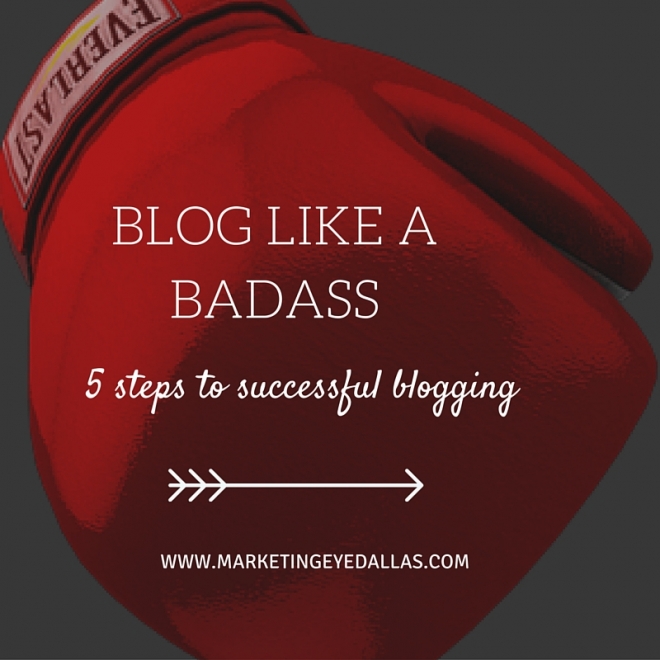Jan 20, 2016 Written by Guest
People are going to say what they will about your company or brand, or worse not talk about it at all. Why not guide the conversation? Blogging is a great way to start a conversation with your target audience, share helpful information and stay top of mind with your audience.
If you're going to go to the effort, why not make the effort count and write a blog that gets attention?
Here are some helpful tips to create a blog that doesn't suck.
If you're going to go to the effort, why not make the effort count and write a blog that gets attention?
Here are some helpful tips to create a blog that doesn't suck.

I'd like to see some personality please
Start by defining your target group of readers and then build a strategy to reach them. This is not a high school essay, press release or case study. Blogs should be light and conversational.
Even for the driest of business topics you will want to start your blog with some engaging hook. If your reader can't get past the first sentence your blogs will be a flop. I suggest starting with an industry or client based story, personal experience, inspirational quote or statistic.
It took me a while, but I do add some personal information from time to time. Stay clear of TMI (too much information), but adding a personal touch about your life, business, struggles, successes and goals helps you to better connect with your readers.
This is a blog not a thesis
I read so many blogs, but most don't get more than 30 seconds each; an in-depth read may get double that. Forget what your English teacher taught you about paragraphs. You can actually write a full paragraph that is only a single sentence.
Consider using lists, bolding text and using short paragraphs to make your content more readable, or 'snackable' as some say.
Whoa that's too many words
There is a fairly strong opinion among those considered experts in Search Engine Optimization that both extremely short and extremely long web pages are not ranked as highly as pages that are of a reasonable length.
Of course no one really knows how many words are ideal – but the general opinion seems to be that a page of at least 250 words are probably a reasonable length. Similarly, many advise keeping pages under 1000 words. I usually split the difference and aim for 500 to 700 words.
When will I hear from you again
I’m a firm believer that there is no ‘one size fits all’ approach to posting frequency on blogs. For some of my clients twice a month seems appropriate. I try to blog two to three times a week. I tried five times a week and thought my readers may have been getting as burned out as I was.
What I do suggest is being consistent. Find your blogging rhythm and stick to it. I usually try to find the balance between helpful and fun to read, marketing vs. entrepreneur, in-depth vs. something light. It's ok to share different topics, but don't be all over the map your writing 'voice'.
Get help to carry the load
Running out of content and ideas is common. Though my family might not agree, I do sometimes run out of things to say. If you start to come to an impasse, get a guest blogger. There may be someone else in your business who would like to share their insight. Make sure it will be of interest to your readers and give them credit.
Another idea is to write about a book you have recently read, a recent study that has been released or about a client success story. Make sure to give credit and stay positive. This is a way to have the heavy lifting of a blog done for you. I wouldn't use it for every blog, but it is good from time to time.
The most difficult thing about blogging is actually starting. You will get better with practice, so go ahead and jump into the fire. Unless you are super controversial, most people will give you a thumbs up just because they like your effort in joining into the conversation.
Leave a comment
Make sure you enter all the required information, indicated by an asterisk (*). HTML code is not allowed.


